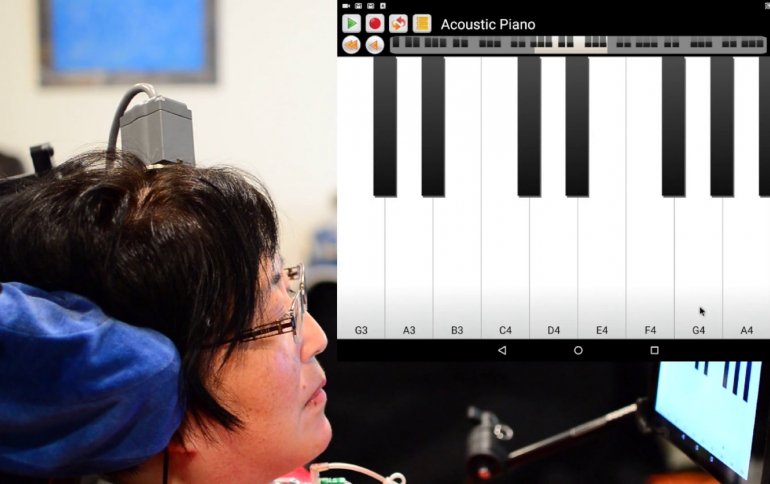
Researchers Create Brain-computer Interface For Controlling Tablets
Researchers have helped people with paralysis to control a tablet by just thinking about pointing and clicking a mouse, using a brain-computer interface (BCI).
In a study published in PLOS ONE, three clinical trial participants with tetraplegia participating in the BrainGate clinical trial used an investigational BrainGate BCI that records neural activity directly from a small sensor placed in the motor cortex. The participants messaged with family, friends, members of the research team and their fellow participants. They surfed the web, checked the weather and shopped online. One participant, a musician, played a snippet of Beethoven’s "Ode to Joy" on a digital piano interface.
The investigational BrainGate BCI includes a baby aspirin-sized implant that detects the signals associated with intended movements produced in the brain’s motor cortex. Those signals are then decoded and routed to external devices. BrainGate researchers and other groups using similar technologies have shown that the device can enable people to move robotic arms or to regain control of their own limbs, despite having lost motor abilities from illness or injury. This study from the collaboration includes scientists, engineers and physicians from Brown University’s Carney Institute for Brain Science, the Providence Veterans Affairs Medical Center (PVAMC), Massachusetts General Hospital (MGH) and Stanford University.
For this study, neural signals from the BrainGate BCI were routed to a Bluetooth interface configured to work like a wireless mouse. The virtual mouse was then paired to an unmodified Google Nexus 9 tablet. The participants were then asked to perform a set of tasks designed to see how well they were able to navigate within a variety of commonly used apps, and move from app to app. The participants browsed through music selections on a streaming service, searched for videos on YouTube, scrolled through a news aggregator and composed emails and chats.

The study showed that participants were able to make up to 22 point-and-click selections per minute while using a variety of apps. In text apps, the participants were able to type up to 30 effective characters per minute using standard email and text interfaces.
The participants reported finding the interface intuitive and fun to use, the study noted.
The researchers say that the study has the potential to open important new lines of communication between patients with severe neurological deficits and their health care providers.














